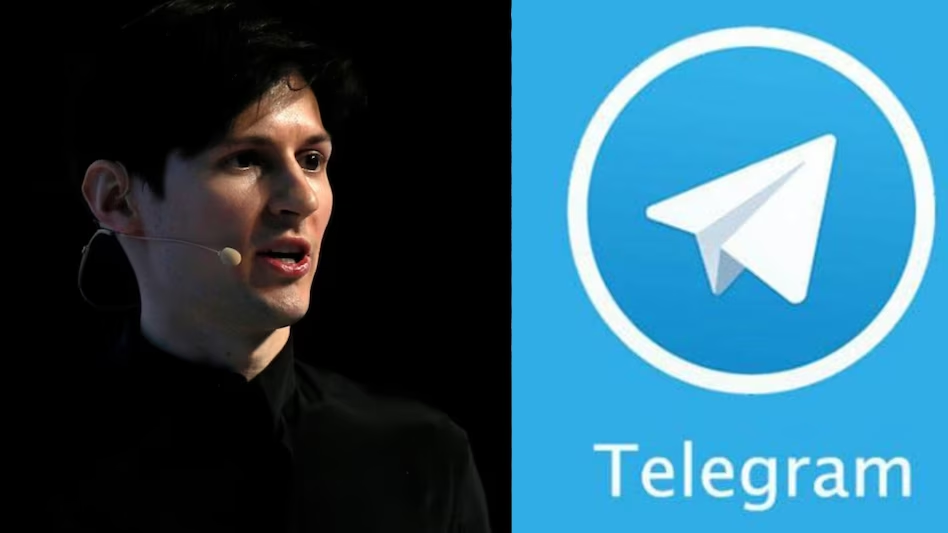Pavel Durov, the CEO of Telegram, faced arrest in August 2024 in France on serious charges, including drug trafficking, money laundering, and links to child exploitation. This arrest sent shockwaves around the globe, as Durov stands as a high-profile figure known for advocating privacy and free speech. His situation raised immediate concerns about the potential impact on privacy rights, given the nature of the accusations and Telegram’s role as a highly encrypted communication platform. The Pavel Durov-arrested news highlights not only the serious allegations against him but also the broader implications for digital privacy and free speech in an increasingly regulated online environment.
Why Was Pavel Durov Arrested?Unpacking the Pavel Durov Arrested News
On August 28, 2024, French authorities arrested Pavel Durov after investigations led to allegations that criminals exploited Telegram, the platform he founded. The authorities charged him with drug trafficking, money laundering, and involvement in child exploitation. Investigators claimed that Telegram’s end-to-end encryption, intended to protect user privacy, also allowed criminals to operate without fear of surveillance. This alleged misuse of the platform contributed to the mounting legal challenges Durov faced, as highlighted in the Pavel Durov arrested news.
French authorities argued that Telegram’s limited moderation policies created an environment where illegal activities could thrive. Users often viewed Telegram as a safe space for free speech, particularly in countries with rampant government censorship. However, the encrypted messaging features also made it a tool for illicit activities. Durov’s arrest formed part of a broader investigation into how criminal networks use encrypted platforms to engage in illegal activities, leading to these serious charges.
How Did His Arrest Happen?
Pavel Durov’s arrest occurred while he traveled in France. For years, Durov had taken precautions against traveling in Europe due to increasing scrutiny of his platform by various governments. Despite this, he entered France in August 2024, where authorities seized the opportunity to detain him based on the evidence gathered in their investigation.
Many people expressed shock at the arrest, considering Durov’s long-standing image as a champion of privacy and free speech. Telegram’s refusal to provide backdoor access to government agencies had made Durov a target for scrutiny, but this marked the first time authorities formally charged him with criminal offenses. His arrest became a hot topic of discussion worldwide, posing questions about the boundaries between privacy, legal enforcement, and platform accountability.
The Charges and Allegations
Authorities leveled serious charges against Pavel Durov, rooted in allegations that criminals used Telegram’s encrypted communication system to conduct illegal activities. French officials, and reportedly authorities from other countries, claimed that Telegram had facilitated drug trafficking operations, laundered money for criminal enterprises, and allowed child exploitation materials to circulate on the platform.
Investigators pointed to Telegram’s lack of strong moderation policies as enabling such activities. While Telegram’s encryption protects user privacy, this very feature complicates law enforcement efforts to track down and prevent these crimes. As CEO of Telegram, Durov faced accountability for these oversight issues, despite the platform’s claims of continually improving its moderation processes.
Bail and Judicial Supervision
Following his arrest, French authorities briefly detained Durov before releasing him under strict conditions. He posted €5 million bail and remained under judicial supervision, which prohibited him from leaving France. Durov must also report to the police twice weekly as investigations continue. These strict measures highlight the seriousness of the charges against him and the ongoing complexity of the investigation.
French law mandates that authorities cannot hold a person beyond a maximum detention period, which is why Durov experienced release after a few days. However, his freedom is limited, and he must comply with the legal requirements set forth by the authorities until the case progresses further.
Global Reactions and Privacy Concerns
Durov’s arrest sparked worldwide reactions, with many people expressing concern over the implications for privacy and free speech. Telegram enjoys a reputation as one of the few platforms that firmly protects user data and resists government pressure to provide access to private communications. This stance has made Durov a hero to privacy advocates while simultaneously making him a target for governments arguing that such encryption tools enable criminal activities.
In Russia, where Durov originally comes from, the reaction was highly critical of his arrest. Some officials claimed that Western countries pursued Durov for political reasons, labeling him a “political prisoner.” Former Russian President Dmitry Medvedev suggested that authorities in the West aimed to undermine Russian influence and gain control over Telegram’s user data.
Conversely, in Europe and other parts of the world, the arrest prompted debates about the role of encrypted messaging platforms in today’s digital landscape. While many governments acknowledge the need for privacy, they also emphasize the importance of preventing illegal activities. Some commentators worry that this case could lead to stricter government regulations on platforms like Telegram, potentially stifling free speech and reducing privacy rights for legitimate users.
Telegram’s Response
Following Pavel Durov’s arrest, Telegram issued a public statement reaffirming its commitment to complying with European laws, particularly the Digital Services Act. The company insisted that while it takes privacy seriously, it also works to enhance its moderation practices to ensure that the platform does not serve as a haven for criminals. Telegram emphasized that Durov’s arrest did not indicate guilt and that his frequent travels in Europe demonstrated his transparency.
The platform highlighted its continuous improvement of systems to monitor illegal content, even within the bounds of its encrypted messaging framework. However, the case has placed Telegram under the spotlight, and the company is expected to face additional scrutiny in the future as governments look to tighten regulations.
Future Implications
Pavel Durov’s arrest news could have far-reaching consequences, not only for him personally but also for how encrypted messaging platforms operate globally. Governments may feel empowered to push for stricter regulations and greater control over platforms that use end-to-end encryption. These potential legal changes could spark conflicts over privacy rights, as users may fear that increased government oversight could lead to censorship and loss of freedom of expression.
For Telegram, this situation marks a defining moment. The company sits at the center of a broader conversation about balancing privacy with accountability. As the legal process unfolds, Durov remains in France under judicial supervision. His upcoming court appearances will attract close attention, as they will likely shape not just his future but the future of Telegram as a secure communication platform. This Pavel Durov-arrested news has already ignited important debates over the limits of privacy, free speech, and the responsibility of tech companies in today’s digital world.
For more detailed information about Pavel Durov’s arrest and its implications, you can read this BBC article.



